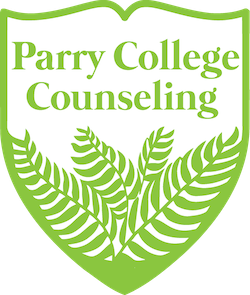
College: Texas Christian University
Location: Fort Worth, Texas (about 45 minutes from Dallas)
Type of Institution: private university
Size: ~10,000 undergraduate students
Admissions Advice: TCU has a fairly holistic application process and has moved to test optional at least through 2024. The admission counselor I spoke with shared that course rigor and grades are by far the most important piece (as with almost anywhere else!) but that TCU also pays attention to the resume and essay sections. They are selective (~50% admission rate) but not impossible to get into, and are really looking for students who will be active members of the TCU community if admitted.
Most popular majors: Nursing, Business, Communication, Dance, Psychology
Words to describe students I met: friendly! (yes, the extra ! is needed), practical, outgoing, spirited, humble, collaborative
Unique academic aspects: TCU has an excellent Honors College option which students can apply to as a prospective freshman or, more uniquely, they can apply after completing some coursework at TCU and maintaining a 3.5+ GPA. Honors classes are typically smaller, more discussion-based, and require a higher level of engagement than other classes, and bring together students with a range of perspectives and from different majors. My guide commented that they have been the most interesting classes he’s had so far, and that students are required to do more “outside of the box” thinking. There are also many perks such as special housing, scholarships, extra advising support, grants, etc. Though many other colleges have Honors Programs, they are often more common at huge state universities OR have a theme/major focus vs. a general approach.
I also love the fact that students don’t have to declare their major upon entering TCU, which isn’t always the case at medium to larger universities. Most majors are accessible to students after completing a few classes on campus, making TCU an excellent option for the undecided student and/or the student who wants time to explore. (Note: Fine and performing arts majors and Nursing are much more challenging for delayed entry, however.)
Unique social/cultural aspects: The “Christian” part of Texas Christian University’s name is often a source of questions when I recommend the university to prospective students; however, the religious component at TCU is even less rigid than it is at many Jesuit colleges and certainly less so than most Christian colleges. Each TCU student must complete one academic religion course to graduate, which could be anything from eastern religions, music and religion, and ethics, to a more traditional study of Christianity. There is no religious code of conduct and no required chapel. Outside of academic coursework, there are 25 religious student groups and 60+ faiths represented on campus. Basically, if the religious piece matters to a student, they can tap into that community on campus and in Fort Worth, but this is definitely not expected and is not a dominant feature of campus academic or social life.
School spirit at TCU is huge, and I loved hearing about game day traditions from the students I met during my visit. Frog Alley is the hub of tailgating before football games, featuring bouncy houses, food & beverages, merchandise, interactive fan experiences, and much more. Support for the Horned Frogs extends beyond just current students and really brings the community together.
Colleges that seem similar: Southern Methodist University, University of Southern California, Loyola Marymount University, Tulane University, Santa Clara University
Concerns about this college: For my Pacific Northwest natives, deciding to attend school in the south means a major change of scenery. There is the obvious geography part (my Seattle native guide laughed when I asked about outdoors clubs and access to biking, hiking, rafting, etc.) and the fact that you won’t see the lush green grass and trees we are so used to in Seattle. Additionally, there is a different political climate, both on campus and in the surrounding area. Though TCU’s student body is fairly liberal, my guide commented that he has been pushed to consider other perspectives (and to hone his beliefs/arguments along the way!), which can really force growth but can be a challenging new dynamic for PNW students to navigate. And finally, the sprawl of Dallas/Fort Worth means students will (probably) eventually need a car.
Overall impressions: TCU is a fantastic option for students looking for a supportive and collaborative academic environment – where professors will actually know your name and advisors will help you figure out your path – but with the big time athletics and vibrant Greek life of a larger university. The guides and panelists I met during my visit were all oozing with TCU pride and genuine camaraderie. And as the cherry on top, TCU continues to provide generous merit scholarships to ~50% of admitted students each year, making this a solid option for middle/upper middle class families who may not qualify for significant need-based financial aid.
